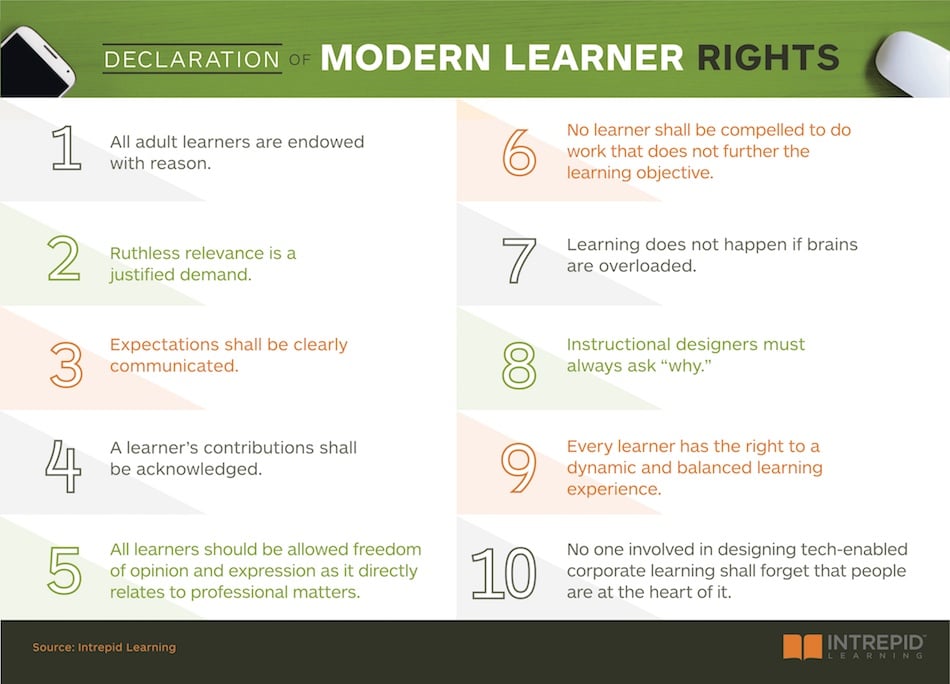
This is not just another ‘the modern learner is finicky and distracted’ compendium of statistics. And it’s not another ‘well, there are a gazillion solutions’ listicle.
Learning initiatives must be good for both the individual learner and the business in order to actually make a difference for the business. That’s our POV, and the DNA of our platform. Over and over again we see in the corporate world lackluster results from tech-enabled learning programs that forget to trust the learner.
So that’s why this Declaration exists, to remind training program owners and designers of the mindset required to create truly great learning experiences.
First, the summary version, just right for sharing with colleagues, or sticking up on your bulletin board (real or virtual) as you go about the challenging work of corporate L&D:

The implications of these simple statements for the design of online learning experiences can be far-reaching. So we did a series of blog and video posts regarding the Declaration’s declarations, which you can find all together here:
Manjit Sekhon’s LinkedIn article introducing the Declaration, which begins, “You know how sometimes core empowering truths arise out of painful experiences? This is how Intrepid’s brand-new Declaration of Modern Learner Rights came to be.”
“The Case for Ruthless Relevance” by Elizabeth Pearce, which argues that “Cutting corners on relevance doesn’t just take the wind out of your sails; it makes you dead in the water.”
“Ruthless Relevance Puts Reg CC in Context” by Judy Albers, a vibrant real-life example of how ruthless relevance helped Capital City Bank’s onboarding program be super-successful.
“5 Ways to Lower the Barriers Between Your Learners and Learning” by Manjit Sekhon, with the five things you need to communicate to your learners and some real-world examples of the same.
“What to Worry About When Moderating, and What Not to Worry About!” by Catie Bull, which delves into ways to keep the learning experience dynamic for learners without being burdensome for moderators/course leaders.
“The AGES Model and More Cognitive Science” by Judy Albers, a rich list of further resources regarding the brain science behind effective online learning design because, as the Declaration says, learning does not happen if brains are overloaded.
“People, People!” by Catie Bull, a reminder of both Declaration #10’s importance and the crossover between marketing and L&D’s work.
“Declaration of the Modern Learner Podcast” by Manjit Sekhon, a Brandon Hall HCMx Radio interview talking about the Declaration and its impact on not just learning design but business results all up.
And we’d love to hear from you about this! How aligned are you with these Articles? Do you agree that business leaders should care about individual learner rights? Please add your thoughts to the Comments below.
P.S. There is also a pretty great origin story to this Declaration that Intrepid’s Director of Learning Experience Design, Manjit Sekhon, has shared on LinkedIn that we think you’ll enjoy.





